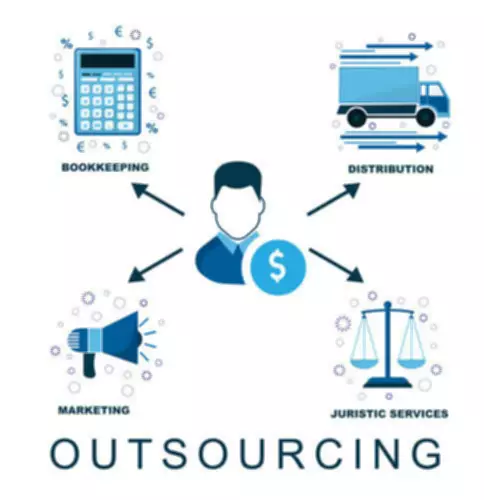Content
- What businesses need to scale effectively
- Scale your business: 11 ways to build lasting growth
- PRODUCTS
- From Cluttered to Organized: How to Optimize Your Warehouse Storage Process?
- From Stuck to Success: 11 Proven Strategies to Get Rid of Mental Blocks
- Scaling Too Fast
- How To Scale A Small Business
- How to Scale a Service Business (Sustainably): The Essential Guide
If you’re thinking about scaling your business, this post should give you a good starting point. But if you’re strategic about it, you can scale your business without getting in over your head. This is when you allow other businesses to use your brand name and sell your products or services. And when you’re scaling your business, managing cash flow becomes even more important. Because as your company grows, you’ll have more expenses and you’ll need to make sure you have enough money coming in to cover them.

When you scale your business, you add resources and team members as revenue grows but at a slower rate than the growth of your client list. As a result, your business scales in a manageable https://www.bookstime.com/ way, allowing margins to increase slowly over time. And if you experience a dip in clientele, your revenue is still enough to sustain your workforce and resource costs.
What businesses need to scale effectively
You’ve probably heard of the term “hypergrowth.” That’s where many early-stage companies fall apart—because they don’t have the processes in place for sustainable growth, and they run out of cash. Scaling is when revenue increases without a substantial increase in costs, meaning you can support further growth—you could look at it as a more sustainable way of growing. Most entrepreneurs have big ambitions when they start a new business. But if you don’t have a road map in place to handle rapid growth, you could become a victim of your own success. If it doesn’t make sense to hire your own employee, there are ways to outsource tasks to streamline your business as you scale. Instead, he uses an agency to handle all his marketing because he realized it was something a third-party would be better at.
- And the right approach for you will depend on a number of factors, including your industry, your business model, and your goals.
- You need to ensure that every part of the chain well-coordinated.
- Consider potential partners you could work with to score more customers.
- It will not only help you understand your business, but it will be something you’ll need to show if you ever seek out outside investment.
- Another way to scale your business is by diversifying your product line or your customer base.
We try to maintain that same net profit target we did early on, but the game has changed. It’s no longer about survival or trying to maintain that $10k baseline; it’s about making sure you have the cash flow you need to support initiatives that can scale a business. Those business owners that focus on revenue alone risk running into cash flow issues that could undermine the future of the business. Focusing on a percentage of revenue left over after you’ve paid yourself, your employees, and covered all of your other costs, means you’re looking at the full picture. A simple rule of thumb is if your business is all over the place and you’re finding more problems than solutions, then chances are it’s time to grow.
Scale your business: 11 ways to build lasting growth
Overshooting your goals early-stage means you’re successful at your current level and need to push harder. For example, you might invest in building a podcasting service or use your skills to provide reputation management to your clients. Chances are, you’re already collecting a ton of data through website traffic, social media campaigns, online searches, purchases, or service requests.

As well as automation software, you’ll need scalable comms for internal and external conversations. Team members need group messaging, task assignment, and file-sharing—and your customers and stakeholders will want the convenience of communicating across various channels. Essentially, you need the right people, the right tools, and a communication plan to keep everyone aligned even if they’re not in the same office. People often use “scale” and “growth” interchangeably, but although they’re related, they are actually two different things. There’s a reason you’ve gained the traction you already have, and you can’t lose sight of it, even as you scale.
PRODUCTS
It’s the business equivalent of being a “Jack of all trades, master of none” – and can compromise the quality of your outputs and your customer experience. Productized services come in various forms depending on what different service-based businesses would like to offer their clients. At the same time, the process saves you time, as you don’t need to customize your services for each new client and know the costs https://www.bookstime.com/articles/how-to-scale-a-business and profits involved. As your team also knows what’s involved in executing each product, business can move along at double speed. For example, improving your resource efficiency instead of hiring new staff can result in an increase in throughput without any additional costs. Or focusing on modern marketing channels such as social media and SEO marketing can attract clients without the heavy advertising budget.
Delegating anything from design to legal issues to external contractors, will free up your time to work on what matters, and ensure you’re on the right path to scaling. Small business owners sometimes overlook how scaling impacts company culture. If you started your business with just three employees and you’ve scaled to 50, that changes how your employees experience their jobs and your company. On the other hand, a company that has unsteady revenues or too much debt is one that may not be secure enough to successfully launch a scaling strategy. And a new business may be focused on establishing roots and may not be ready to scale.
From Cluttered to Organized: How to Optimize Your Warehouse Storage Process?
Faster iteration demands ongoing contributions from stakeholders across the model lifecycle, and finding the correct tool or platform is an essential step. Tools and platforms that support AI at scale must support creativity, speed, and safety. Without the right tools in place, a business will struggle to uphold all of them concurrently. Yet many organizations fall into the trap of reinventing the wheel every time they operationalize a model. In the case of the financial company discussed above, the lack of a repeatable way to monitor model performance caused expensive and slow-to-remedy failures.
If you are not prepared and ready to grow, you risk falling flat on your face. Having structured systems inside your business helps to secure your business and prepare it for rapid growth. Businesses may boost their chances of success by addressing growth and scale challenges. Implementing effective procedures, investing in needed resources, and establishing a strong team may help manage growth.
From Stuck to Success: 11 Proven Strategies to Get Rid of Mental Blocks
The larger market allows businesses to enjoy the benefits of economies of scale, improve profit margins and expansion through leverage. For a scaled business, new customer acquisition is an important factor. Now let’s focus on some key factors that determine the success of your business scaling strategy. No matter how established, many businesses face severe repercussions, especially due to the COVID-19 downturn, followed by social alienation and a countrywide lockdown.
- Optimize your campaigns to control budget spending if you run paid campaigns on any platform, and set realistic goals to track campaign performance.
- AI shortcuts like pre-trained models and licensed APIs can be valuable in their own right, but scaling AI for maximum ROI demands that organizations focus on how they operationalize AI.
- Startups can also consider venture capital and bring on experienced investors with the right contacts to help them scale.
- It’s an extremely valuable way to boost traffic and improve brand awareness.
- For example, if you sell products, you might consider adding new product lines or expanding into new markets.
This is a common mistake that companies make when they’re scaling. They hire too quickly and they don’t take the time to find the right person for the job. Great leaders know one thing — having a natural curiosity and thirst for learning separates the good from the great.I’m not going to lie, scaling up will shake things up at your company.